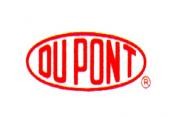 Seems like AutoblogGreen's been on to something these last couple of years as it relates to the greening of the automotive industry. For the first time in fourteen years, the annual DuPont Automotive/SAE survey of OEM and supplier designers and engineers, conducted by Consumer Insights, Inc, found that environmental concerns topped cost as the biggest hurdle automakers must overcome.
Seems like AutoblogGreen's been on to something these last couple of years as it relates to the greening of the automotive industry. For the first time in fourteen years, the annual DuPont Automotive/SAE survey of OEM and supplier designers and engineers, conducted by Consumer Insights, Inc, found that environmental concerns topped cost as the biggest hurdle automakers must overcome.
Other highlights:
- Fifty-four percent of respondents say that fuel efficient vehicles with reduced environmental impact are important to consumers -- that number seems a bit low to us.
- For the fifth consecutive year, alternatively powered vehicles are predicted to have the greatest impact on the industry.
- Fifty percent of respondents see diesel engine technology as a key focus to help achieve 2020 efficiency regulations, compared with forty-six percent for hybrids
- In 10 years, most people predict the majority of vehicles will run on bio-based diesel fuel (27 percent); petroleum-based diesel (20 percent) and E85 (20 percent). Only 18 percent predict gasoline will dominate.
Press Release:
Environment Tops Cost as Top Auto Industry Challenge According to 2008 DuPont Automotive/Society of the Automotive Industry Survey
DETROIT, April 10 -- A new survey conducted by DuPont (NYSE: DD) and the Society of the Automotive Industry (SAE) shows that environmental issues top the list of challenges facing the automotive industry, outranking cost reduction for the first time in 14 years.
A total of 53 percent of the respondents said that a basket of environmental factors such as fuel economy, CAFE and emissions or clean air regulations are the top challenges versus 32 percent who cited cost. The survey, released today, was conducted among automotive designers and engineers in advance of the upcoming SAE World Congress in Detroit.
"While cost reduction remains very important, the automotive industry's emphasis is on the environment and the demands that puts on innovation," said Chris Murphy, director -- Americas, for DuPont Automotive. "In the results, environmental considerations are driving system and vehicle design and development and are a differentiator in the consumer marketplace. Automotive designers and engineers are working with suppliers like DuPont to address these issues and to design and develop cost-effective, fuel-efficient vehicles with reduced environmental impact."
To support that drive, DuPont Automotive has launched several new material families and technology solutions, including:
-- MetaFuse(TM) nano-metal/plastic hybrids which offer the strength and stiffness of metal combined with the design flexibility and lightweight benefits of high-performance thermoplastics to help take the weight out of structural automotive components. This also helps improve fuel economy and contributes to reduced emissions.
-- DuPont(TM) Renewably Sourced(TM) Materials -- high-performance, bio-based materials and biofuels that are made in whole or in part from renewable agricultural feedstocks such as corn, soybeans, sugar cane and wheat, rather than petroleum. Today, nine product families have been launched, including DuPont(TM) Sorona(R) polymer, DuPont(TM) Sorona(R) EP thermoplastic polymer, DuPont(TM) Hytrel(R) RS thermoplastic elastomer and DuPont(TM) Zytel(R) long chain polyamides.
The annual DuPont Automotive/SAE survey of OEM and supplier designers and engineers was conducted by Consumer Insights, Inc Key findings include:
-- Fifty-four percent of respondents say that fuel efficient vehicles with reduced environmental impact are important to consumers. Forty one percent say enhanced safety and 37 percent say improved comfort and convenience are important to consumers.
-- For the fifth consecutive year, alternatively powered vehicles are predicted to have the greatest impact on the industry. Sixty percent selected alternatively powered vehicles in 2008, while 15 percent selected safety features and 16 percent selected electrical/electronic advances.
Future is Bright for Diesel
-- Fifty percent of respondents see diesel engine technology as a key focus to help achieve 2020 efficiency regulations (35-mpg in U.S. and sub-120g/km CO2 in Europe), while 46 percent say hybrid-electric powertrains and 42 percent say extensive use of lightweight materials.
-- Optimizing diesel and hybrid-electric engines will dominate engineers' work for the next 10 years, say 25 percent and 24 percent of respondents, respectively.
-- In 10 years, vehicles will run on bio-based diesel fuel (27 percent); petroleum-based diesel (20 percent) and E85 (20 percent). Only 18 percent predict gasoline will dominate.
Materials Matters
-- Cost reduction is still one of the top material selection criteria, say 91 percent, but weight reduction jumps to the top of the criteria list for 82 percent, up from 66 percent last year.
-- Poised to grow the most over the next 10 years are advanced composites, say 62 percent of respondents. Bio-based, renewable materials will grow the most, say 26 percent; the same number who predicts aluminum will grow the most.
[Source: DuPont]


Sign in to post
Please sign in to leave a comment.
Continue